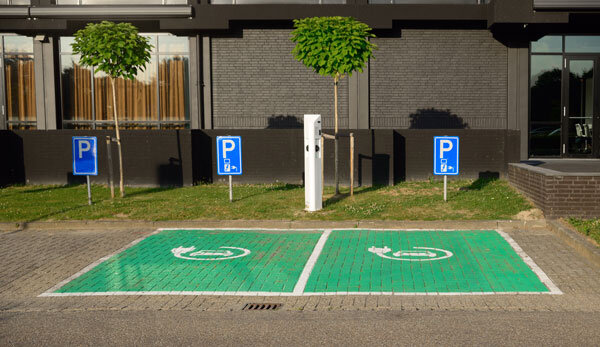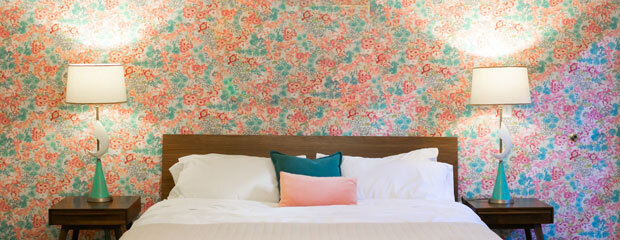With travel demand, labor shortages, and operating expenses increasing simultaneously, it’s a challenge for independent hoteliers to uphold service standards while working harder than ever. Watching and implementing current hotel trends enables hoteliers to find new ways to streamline operations, even as they elevate guest experience and maximize profit.
Read on for important boutique hotel trends to save time, drive revenue, and set your property apart from the competition.
Contactless Service
While humans are the heart and soul of the travel experience, using technology to automate routine processes is desired by most consumers. Streamlining and automating processes means that guests (and staff, too!) don’t have to tire themselves out in line and can better spend their time and energy creating a memorable stay experience. Self-service options for guests also cut operational costs and keep your brand relevant.
Previously, these innovative technologies were mostly unattainable and limited to large chain hotels. Now, with decreased costs and increased accessibility, boutique hotels give guests the luxury of contactless services alongside the unique experience of a small operation. There are many ways to incorporate self-service technology at your property, including online booking and payment, digital check-in/out, keyless room access, and mobile guest messaging.

Welcoming the Digital Nomad
Post-pandemic, remote work is now ubiquitous, bringing the digital nomad’s lifestyle into the mainstream. This demographic earns their living by working online from various locations.
Boutique hotels can entice remote workers to book or extend their stay with packages and discounts that serve their professional and personal needs. Reliable, high-speed Wi-Fi is also necessary, paired with aesthetically pleasing and practical co-working spaces.
Many of these travelers value wellness in all areas of their lives. However, remote work makes it challenging to separate work life from personal life. Consider designing rooms with clearer lines between sleeping and working areas.
They’re also attracted to the aforementioned contactless self-service technologies that will empower them to work freely and autonomously during their stay. And, because remote workers usually don’t have traditional schedules, implementing flexible hours for room service and your hotel restaurant will make those guests feel welcome while boosting your bottom line.
Sustainability
Recent research shows that consumers are willing to pay more to vacation sustainably. With increased awareness and information surrounding climate change and socially responsible consumerism, many travelers strongly prefer that their money supports responsible, ethical businesses that positively impact the environment and the surrounding community.
While leaving a destination as pristine as you found it is becoming a mainstream travel narrative, some take it further by advocating for “regenerative travel.” Regenerative, or elevated, travel refers to the idea that we can nurture the places and people we visit and leave them better than when we arrived.
Boutique hotels can apply this philosophy by offering locally made amenities and partnering with local providers to give guests sustainable experiences such as farm-to-table dining. Small lodging operators can implement zero-waste practices, cloud-based technology, and low-impact design while providing guests with activities that support and preserve surrounding nature, historic buildings, and communities.
Sustainability practices benefit not only the planet everyone shares but your business’s bottom line as well by making your location more desirable to customers and reducing financial and environmental costs.

Off-Season Travel
Off-season travel is desirable for both destinations and vacationers because it counteracts the effects of over-tourism while allowing travelers to explore new locations without the large crowds and inflated prices. It ties in with the demand for sustainable and responsible hospitality practices because people want memorable experiences without harming the planet or people. With the last few years being defined by worldwide travel restrictions, vacationers want immersive cultural experiences that preserve heritages and protect the local environment and economy.
Boutique hotels are well-equipped to offer these kinds of experiences because they have the operational freedom to craft a brand based on their specific location. This trend is closely related to the rising popularity of off-season travel because hoteliers can draw customers in with the promise of a memorable, authentic local experience any time of year.
Searching for Wellbeing Through Travel
Another trend to emerge post-pandemic is the prioritization of wellness. Traveling can interrupt or change one’s lifestyle, from getting less sleep in favor of an activity-packed itinerary to unhealthy eating. Since the pandemic, more consumers are searching for hotels catering to their health and wellness needs (like sleep!) rather than detracting from them.
Boutique hotels can adopt this trend by taking advantage of ingredients and practices specific to their location, for example, using local organic honey as an ingredient in their spa amenities or supplying artisan coffee in their rooms. Your property doesn’t have to have an on-site spa to cater to wellness demands. There is also an opportunity to partner with local experts to offer treatments such as massage, acupuncture, yoga classes, and more. Even better if treatments are specific to the region, originating from surrounding cultural practices to provide a unique wellness experience.
With innovative technologies and a focus on the local culture, boutique hotels are perfectly positioned to provide the comfort and charm of a small lodging with the luxury of a large operation. These boutique hotel trends point toward a unique, elevated guest experience made possible by practices that benefit the planet, the community, and your bottom line.

